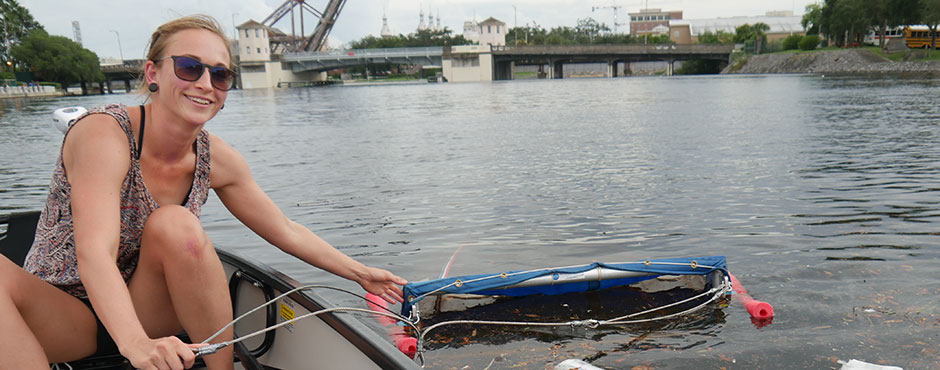 October 2020 – Plastics are everywhere in the environment and pose a serious threat to natural systems and wildlife. In rivers, plastic breaks down into smaller parts but doesn’t decompose, making it a conduit, collector and source of pollution. To help solve this problem, PhD candidate Charlotte Haberstroh with the USF Department of Civil & Environmental Engineering is studying plastic pollution in the Hillsborough River. She collects data to better understand the timing and patterns of release, the movement of plastic in the Hillsborough River, and how the built environment affects plastic pollution in the river.
October 2020 – Plastics are everywhere in the environment and pose a serious threat to natural systems and wildlife. In rivers, plastic breaks down into smaller parts but doesn’t decompose, making it a conduit, collector and source of pollution. To help solve this problem, PhD candidate Charlotte Haberstroh with the USF Department of Civil & Environmental Engineering is studying plastic pollution in the Hillsborough River. She collects data to better understand the timing and patterns of release, the movement of plastic in the Hillsborough River, and how the built environment affects plastic pollution in the river.
Ms. Haberstroh presented her research to the River Board’s Technical Advisory Council in September 2020. She estimates over two tons of plastic pass by the mouth of the river and into the bay each year. Her research concludes that the amount of plastic in a river is dependent on the urban land uses in the river basin, rainfall seasonality and flow conditions/turbulence. Furthermore, she suggests regulation of plastic in storm and wastewater may help, as well as continuous removal and management in urban areas. Ms. Haberstroh also recommends stormwater treatment strategies that remove plastics.
For more information visit https://www.watershedsustainability.org/river-plastics.
